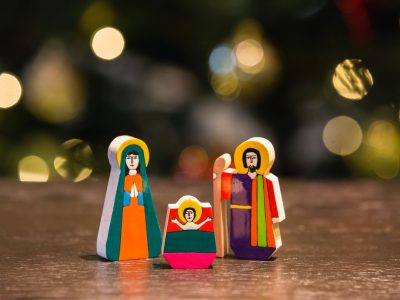December 2021 Bible Study: Seeking the King
By Mistie LambIntermountain Division Christmas is a time to celebrate the birth of Jesus. We know that Jesus wasn’t born on December 25th of course, but this is the time …
Salvation Army USA Western Territory Women's Ministries

By Mistie LambIntermountain Division Christmas is a time to celebrate the birth of Jesus. We know that Jesus wasn’t born on December 25th of course, but this is the time …

By Major Beth DesplanckeTerritorial Women’s Ministries Program Secretary Bible Study on 1 Chronicles 16:8-36 INTRODUCTIONIt is November, and here in America we focus on the celebration of Thanksgiving, a time …

Authentic Thanksgiving Bible Study By Anna Stone Pathway of Hope Director, Hawaiian & Pacific Islands Division The Apostle Paul admonishes us to be thankful in all circumstances. (1 Thessalonians 5:18). …

By Major Shannon MurphyYuba/Sutter, CA Corps – Del Oro Division Scripture References: John 15:16, Matthew 13:3-8, John 15:1-4 My oldest son is currently working his second season at a local …

By Major Ronda GilgerCoeur d’Alene Kroc Center, ID – Northwest Division “The Art of Neighboring” is a 4 part Bible Study series on how to love our neighbors. Rethink the …

By Lt. Taneya GarrettAdministrator for Program – Long Beach, CA ARC Over the years I have met many women who feel like they can’t enjoy life with Jesus. What I’ve …

Bible Study on John 8:31-47By Lisa Smith, Southwest Division INTRODUCTION: One of my favorite holidays is the Fourth of July. It is a day filled with picnics in the park …

[av_textblock size=” font_color=” color=” admin_preview_bg=”] What Could Be Found Through The Loss by Major Katina Hanson, Medford, OR Citadel Corps Officer and Major Anya Henderson, Cascade Divisional Women’s Ministries Secretary …

[av_textblock size=” font_color=” color=” admin_preview_bg=”] Don’t Forget the Bread By Cadet Amber Herzog College For Officer Training If you were to go into your kitchen or pantry, chances are you …

[av_textblock size=” font_color=” color=” admin_preview_bg=”] Dress for Success Colossians 3 Bible Study By Major Robin Bottjen Divisional Secretary for Program – Del Oro Division In today’s world, first impressions are …

[av_textblock size=” font_color=” color=” admin_preview_bg=”] Warped Love By Lt. Claire O’Brien-Hawk Biblical Literacy & Discipleship Officer – California South Division If I’ve heard it once, I’ve heard it a thousand …

[av_textblock size=” font_color=” color=” admin_preview_bg=”] Pieces of a New Year A Bible Study on Isaiah 43 By Major Beth Desplancke, Territorial Women’s Ministries Program Secretary A New-Year is like a …

[av_textblock size=” font_color=” color=” admin_preview_bg=”] Linger at the Manger: The 12 Days of the Nativity By Major Beth Desplancke, THQ One of my favorite things about Christmas are the Nativity …

[av_textblock size=” font_color=” color=” admin_preview_bg=”] Immanuel: God With Us Bible Study By Captain Tiffany Lawler Salt Lake City, UT Corps – Intermountain Division Matthew 1:18-25 Have you ever felt alone? …

[av_textblock size=” font_color=” color=” admin_preview_bg=”] From the author, Major LeAnn Van Cleef-Trimmer: “In recent days, as I have watched the news and scrolled Facebook, one thought comes back to me …

[av_textblock size=” font_color=” color=” admin_preview_bg=”] It’s the season of giving and good cheer, but for so many around the world, the need for basic human rights persists. This month, we’re …

[av_textblock size=” font_color=” color=” admin_preview_bg=”] We were designed for community. We were intended to belong in relationship. Scripture tells us we were created in the image of God. To be …

[av_textblock size=” font_color=” color=” admin_preview_bg=”] Bible Study on Joy By Captain Jan Pemberton Divisional Women’s Ministries Secretary, Alaska Division “I choose joy… I will invite my God to be the …

[av_textblock size=” font_color=” color=” admin_preview_bg=”] Be Reconciled to God Bible Study based on Acts 9 By Envoy Tawnya Stumpf Coos Bay, OR Corps – Cascade Division In the beginning scenes …

[av_textblock size=” font_color=” color=” admin_preview_bg=”] Changing the World Starts With Me By Major LeAnn Van Cleef-Trimmer Reno, NV Corps – Del Oro Division When I was a young mother and …

[av_textblock size=” font_color=” color=” admin_preview_bg=”] Bible Study: “It Takes a Village” Scripture: Numbers 11:1-17 By Captain Harryette O’Brien Divisional Youth Secretary, Southwest Division “It takes a village”. These are words …

[av_textblock size=” font_color=” color=” admin_preview_bg=”] A Psalm for the Summer A Bible Study on Psalm 19 By Captain Harryette O’Brien Divisional Youth Secretary, Southwest Division As the construction of cityscapes …

[av_textblock size=” font_color=” color=” admin_preview_bg=”] This is a Scripture study about new beginnings—about our resolutions to be better, do something better, to start something or end something. One of the …

[av_textblock size=” font_color=” color=” admin_preview_bg=”] JOCHEBED: A COURAGEOUS AND ASTUTE MOTHER Captain Anie Trimmer Divisional Women’s Ministries Secretary, Intermountain Division Exodus 2:1-10 To properly understand the situation and to give context …